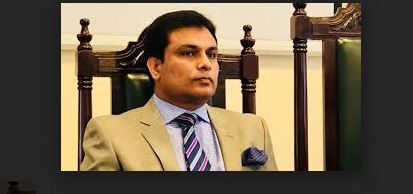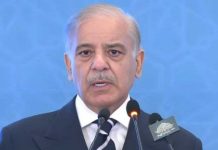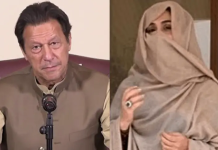ISLAMABAD, AUG 27 /DNA/ – The All Pakistan Business Forum has urged the government to control instability of rupee against the US dollar, as the local currency hit an 11-month low at Rs165 against the US dollar in the inter-bank market despite the receipt of a significant amount of foreign funds from the International Monetary Fund.
APBF President Syed Maaz Mahmood observed that the economic growth and industrialization are not possible without stability of rupee, as the dollar has been appreciating against the rupee for the last more than 11 months because of the higher current account deficit and burgeoning import bills.
He said that with a fresh drop of about half a percentage point, the rupee has depreciated by 4.86% in the current fiscal year to date and 8.49% since it hit a 22-month high at Rs152.27 in May 2021. The development suggests the theory the country’s rupee-dollar exchange-rate moves up or down in accordance with the situation on demand and supply of the foreign currency has become ineffective, he said and added that it seemed that authorities have let the rupee depreciating to discourage rising imports and encourage exports in an attempt to narrow down the widening trade deficit which poses a serious threat for the domestic economy. He expressed the fear that the rupee might be moving down in search for its value fit for resuming the IMF $6 billion loan program which is on hold for the past two months, but it would impact negatively on the country’s overall economy. It is not understandable that the State Bank of Pakistan received $2.75 billion from the Washington-based global lender and these receipts have boosted the country’s foreign currency reserves to all-time high at $20.4 billion but has reversal effect on value of local currency.
APBF Chairman Ibrahim Qureshi observed that the market-based flexible exchange rate system, resilience in remittances and other factors can help contain the current account deficit in a sustainable range of 2-3 percent of GDP in FY22. He said that the rising of dollar is not logical despite the fact that the State Bank says Pakistan’s external position was at its strongest in 10 years with 0.6% current account deficit in FY21. Since the May this year, the dollar has been appreciated by 7.15% against the local currency which lifted the cost of imported products and created uncertainty about the exchange rate stability. The dollar was at Rs164 in Oct 2020 and now again hovering in the range of Rs165 in Aug 2021. Since the beginning of the new financial year the exchange rate looked shaky against the US dollar. The market reacted over the policy-makers’ announcement about 2-3% current account deficit, while the importers rushed for higher amount.
Syed Maaz Mahmood said that trade and industry have no idea as to what is the real exchange rate needed by the central bank and which is the end point for depreciation of rupee. Though the exporters would get some benefit against their export proceeds but the overall economy would face a tough time as the cost has been rising and finally it would affect consumption, which is the main wheel to run the economy. Although the central banks’ foreign exchange reserves are in a better shape, but it has to rely heavily on borrowing to keep it at around $18 billion which affects the local currency value negatively.

















